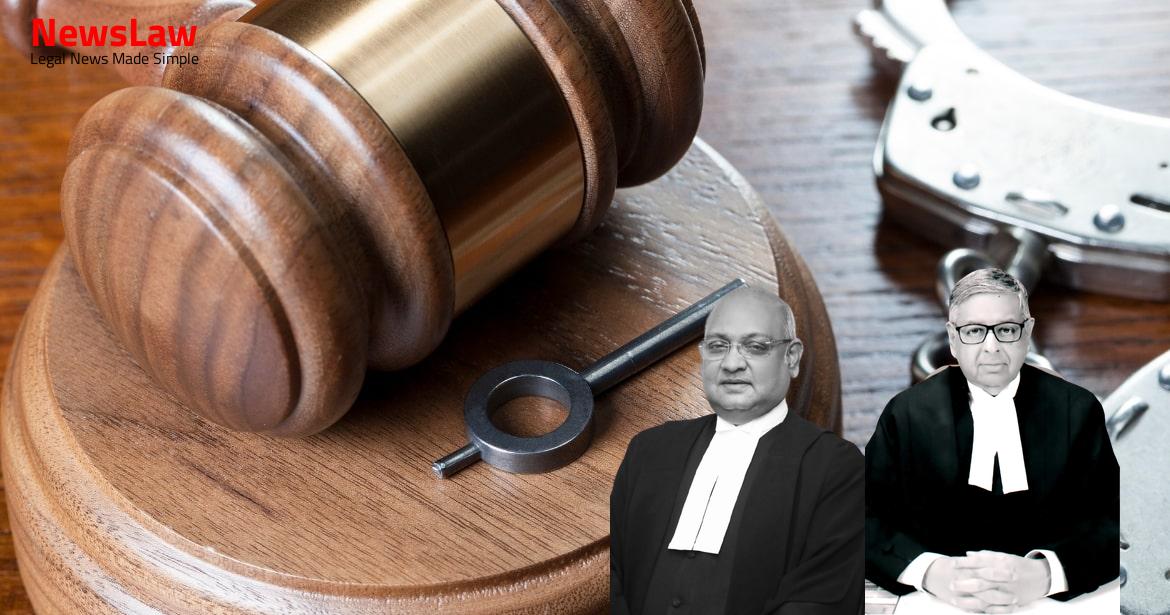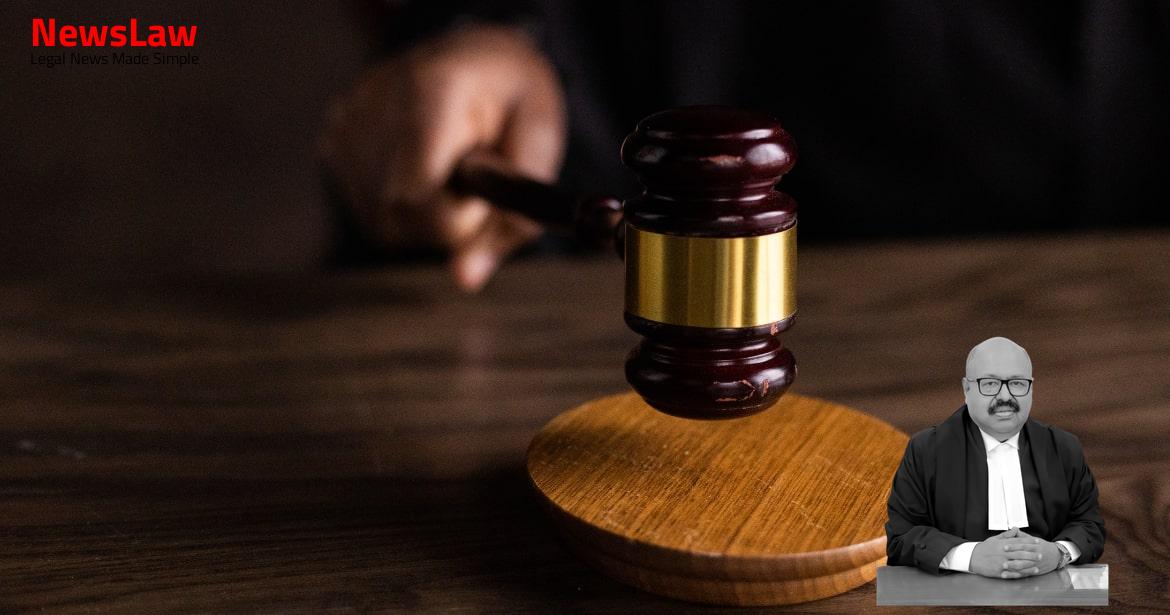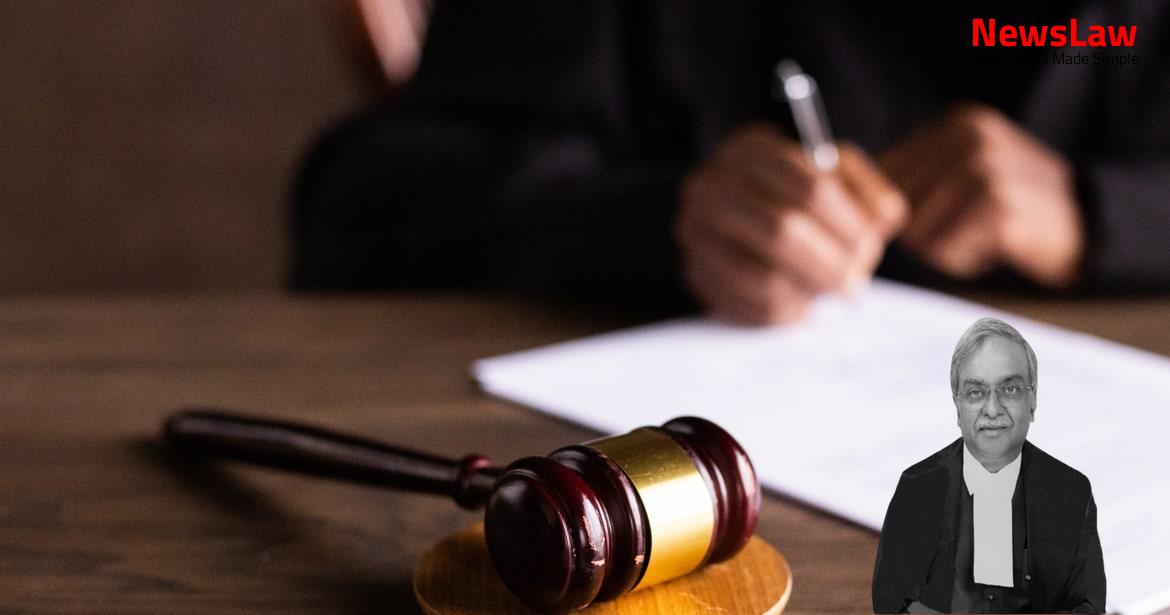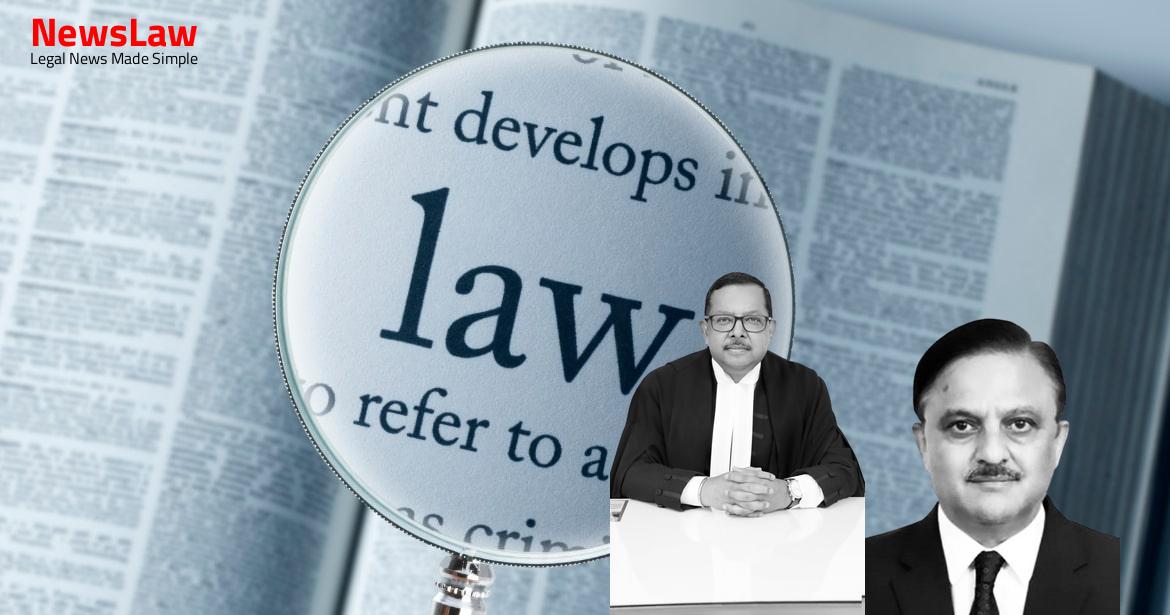Explore the nuanced legal analysis involved in the suspension of sentence in post-conviction bail cases. The court’s focus on potential errors in the conviction order rather than reassessing evidence shapes the decision-making process. Understanding the principles behind granting bail post-conviction sheds light on the complexities of the legal system.
Facts
- Appellant sought suspension of execution of sentence during pendency of Criminal Appeal No 1219 of 2021.
- High Court declined the prayer for suspension of sentence based on the deposition of the 9-year-old prosecutrix and medical evidence.
- Appellant was convicted for kidnapping and intending to outrage the modesty of the victim.
- Sentences imposed: RI for 3 years under Section 363 IPC, RI for 2 years under Section 354 IPC, and RI for 1 month for default in fine payment under POCSO Act.
- High Court ordered appeal to be listed for hearing without commenting on merits of the case.
- The prosecution’s case was that the victim was released her hand and ran while shouting
- This action of the victim was a key point in the prosecution’s argument
- It indicated that the victim felt threatened or in danger
Also Read: Ensuring Maintenance Rights: Court’s Legal Analysis
Arguments
- Learned counsel for the appellant argued that the High Court’s view was too strict and failed to consider the maximum sentence awarded was three years and all sentences were to run concurrently.
- The appellant had already served two months of imprisonment prior to the consideration for suspension by the High Court.
- Denying further execution of sentence would likely result in the appellant serving the entire or a substantial part of the sentence, which couldn’t be undone even if the Appellate Court reversed the conviction.
- No special and compelling reason was provided for the suspension of execution of sentence.
- Therefore, the prayer for suspension of execution of sentence was rightly rejected.
Also Read: Analyzing Evidentiary Value in Criminal Conviction Case
Analysis
- In cases where the maximum sentence of imprisonment is three years, bail may be denied during the pendency of appeal.
- Post-conviction bail, by suspension of sentence, does not involve the presumption of innocence as there is a finding of guilt.
- In considering an application for suspension of sentence, the appellate court focuses on potential errors in the conviction order rather than reassessing evidence.
- The observations regarding suspension of sentence and bail must be considered in the specific factual context of each case.
- The High Court must consider the prima facie merits of the appeal and other factors before granting bail post-conviction.
- Strong and compelling reasons must be present for granting bail after conviction, as mandated by Section 389(1) of the CrPC.
- Special or compelling reasons must be recorded in the order when granting bail after conviction.
- In pre-trial arrest situations, there is a presumption of innocence.
- Grant of bail under Section 439 CrPC is different from suspension of sentence under Section 389 CrPC and grant of bail post-conviction.
- Courts may be liberal in granting bail pre-trial, depending on the facts and circumstances of the case.
- The principle that ‘bail is the rule and jail is an exception’ is followed in pre-trial arrest situations.
- The High Court has not deemed the appeal to be a priority for hearing.
- Given the situation, it is unlikely that the appeal will be heard immediately by the High Court if it is not given priority.
- These circumstances support the suspension of the execution of the sentence during the appeal.
- There are no other adverse reasons to deny relief to the appellant, such as criminal antecedents or misconduct in jail.
Also Read: Legal Authority and Res Judicata in Representation Matter
Decision
- The appeal is allowed.
- Execution of the remaining part of the sentence awarded to the appellant is ordered to be suspended during the pendency of appeal in the High Court.
- The appellant is ordered to be released on bail on such terms and conditions as may be imposed by the Trial Court.
Case Title: JEETU KHATIK Vs. THE STATE OF CHHATTISGARH (2022 INSC 414)
Case Number: Crl.A. No.-000603-000603 / 2022



